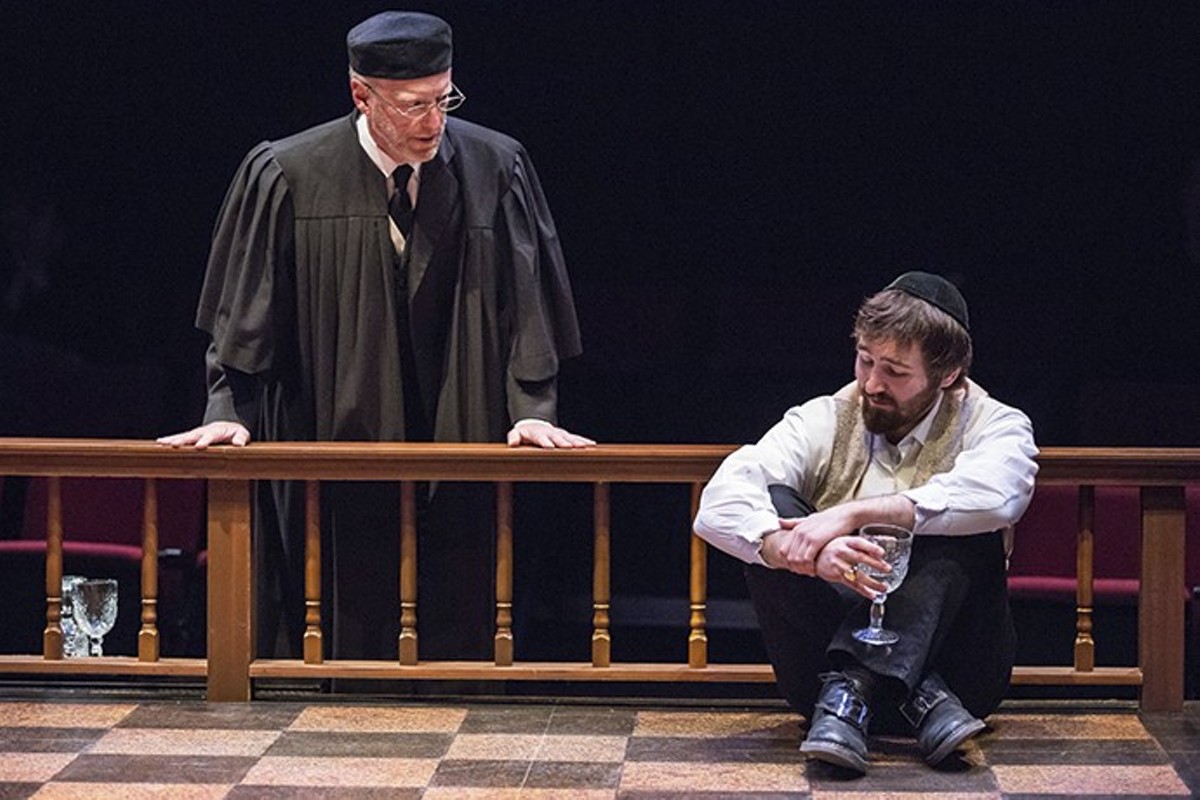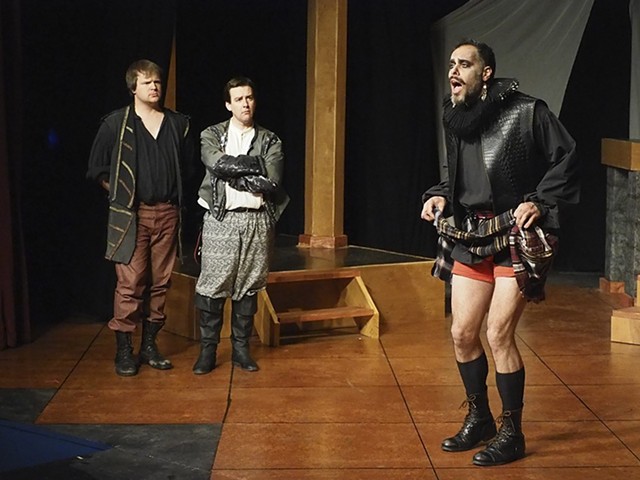Baruch de Spinoza has really done it this time. It's not enough that he's ceased training to be a rabbi, lives with a defrocked priest and is maybe in love with that man's daughter; no, he's discussing religion with non-Jews, which is illegal in seventeenth-century Amsterdam. The Jewish population agreed to live under certain restraints, and they all know that if they break that covenant they risk being cast out of the city. Spinoza has not only put himself in hot water; he's putting his entire community at risk. It's a shame, because for Spinoza the only thing that matters is absolute truth. Philosophers, right?
David Ives' legal and theological drama New Jerusalem is a fictionalized deep dive into Spinoza's philosophy, the historical facts surrounding his trial and the mechanics of faith. Tim Ocel's current production of the play for the New Jewish Theatre is sturdy enough to support this weighty material, and there are some excellent performances on display, but you really have to love the subject matter to engage fully with it. If you're not a courtroom drama fanatic who dabbles in philosophy and loves a good religious argument, the 80-minute first act may break you.
Spinoza (an endearing Rob Riordan) is called to his temple to answer for his crimes by his former teacher Rabbi Mortera (John Flack), temple layman Gaspar (Greg Johnston) and Abraham van Valkenburgh (Jim Butz), the official representative of the city and a Christian. Van Valkenburgh is New Jersalem's motivating force, demanding the interrogation and frequently complaining that Spinoza, whom he believes is guilty of numerous infractions, is being protected more than he's being punished. He's not wrong; Johnston makes Gaspar a warm, benevolent figure in Spinoza's corner.
Butz gives van Valkenburgh a haughty sense of his own power. He's openly dismissive of his host's traditions and explosively hostile to the accused. Riordan's Spinoza is intellectually above the fray, enjoying the argument, cheerfully pointing out flaws in others' reasoning and frequently returning to his themes, namely, that everything is God, God is flawless and all actions have been pre-ordained — but God also doesn't care what happens to him or anyone else, because how could he bother with us?
As the play progresses the viewer gets the sense that the arguments are being repeated from slightly different angles. Spinoza's beliefs are as hard to pin down as he himself is, while van Valkenburgh only gets angrier and Gaspar more resolute.
When Rabbi Mortera reluctantly joins the questioning, the scope of the discussion narrows to just him and the accused. As is often the case when people you love disappoint you, it ends in tears. Spinoza fits together the pieces of the puzzle he's been working on all along and weeps. John Flack appears to age a full decade when his Rabbi Mortera realizes the enormity of the destruction Spinoza wreaked to perfect his personal spiritual philosophy.
It's a haunting finale to a play that asks quite a bit of its audience, but the lasting image is of Butz's van Valkenburgh standing at the edge of the room, swathed in shadow and horrified at what has occurred in his pursuit of punishment. Each man got what he wanted, but nobody's happy.






